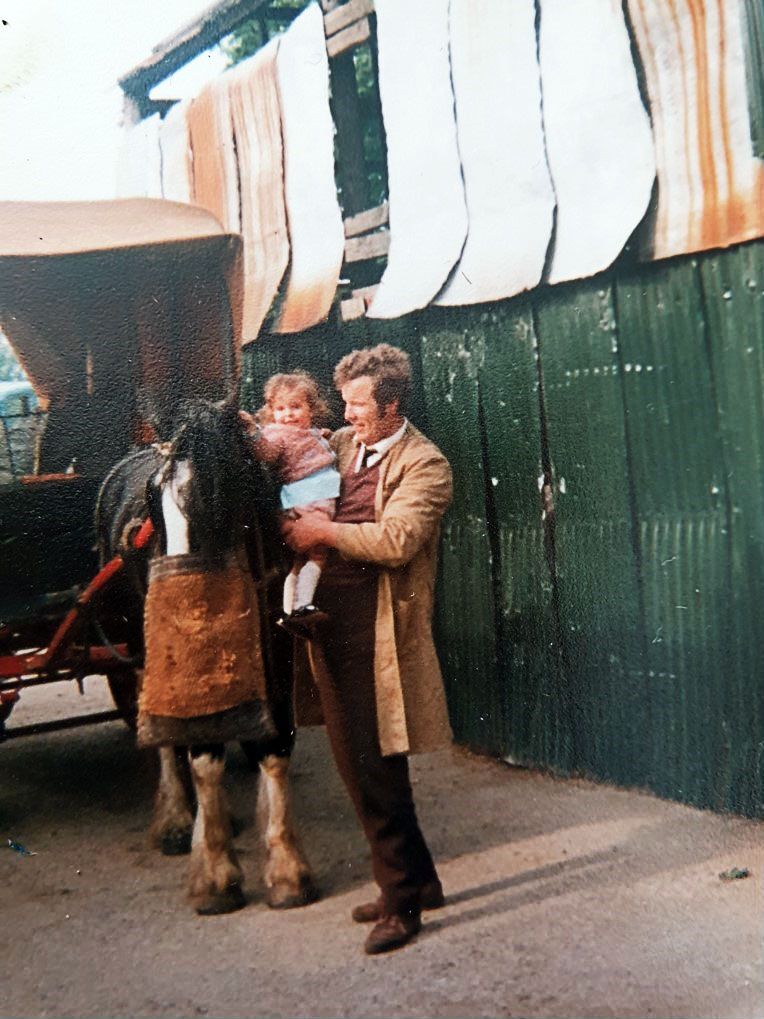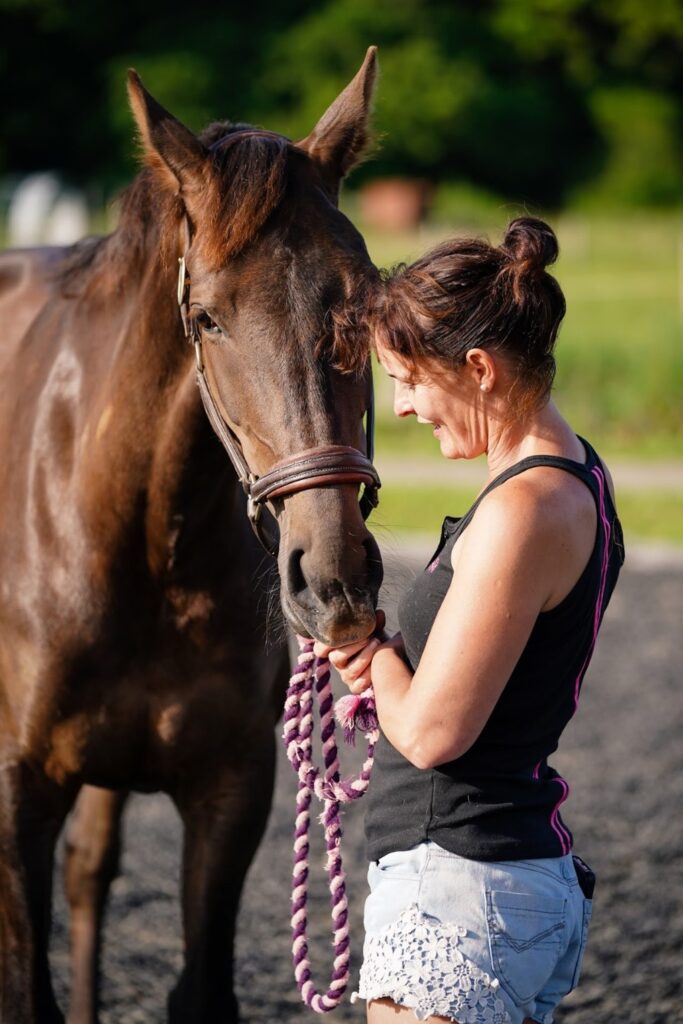Sarah Brabrook is a BD accredited trainer and judge who runs a thriving livery and training yard near to the South Downs in East Sussex.
Sarah spent her childhood riding a wide variety of horses and ponies belonging both to her father and others. This has given her a greater level of experience and she has had much success bringing on youngsters and training her own horses to compete successfully in advanced BD classes.
Her earlier years with the Eridge Pony Club were spent competing in all team events and she went on to train with many international dressage trainers in the subsequent years, taking guidance from a wide variety of influences to help her develop her own philosophy.

It was however, as a member of the Training the Teachers of Tomorrow scheme that the instruction she received cemented the principles used by Sarah in her training today. She rode under the guidance of modern Classical Masters Charles de Kunffy, Herwig Radnetter and Arthur Kottas, the former Chief Rider at the Spanish Riding School. Many modern international riders, such as Carl Hester and Charlotte Dujardin now use classical principles in their own training as these principles are recognised as the way to train horse without force and the way to produce healthy, happy horses whether they are Olympic prospects or happy hackers.
Central to Sarah’s philosophy is the importance of a calm and peaceful environment. She believes that this is crucial, not only in aiding the development and training of the horses and ponies in her care, but also helps to keep them healthy and happy. Each horse is regarded as individual, and training is programmed to suit their development dependent on their physical and mental needs. All aspects of horse management – feed, shoeing, tack, rider biomechanics are looked at as well as the environment, enabling each animal to achieve its best.
Owners often comment on how their horses flourish in this environment, and it is this high level of support that Sarah gives to her clients that helps them achieve their own personal goals. This may range from leisurely hacking on the Downs to competing in their chosen discipline – and often many surpass anything they thought they could achieve.

My philosophy is that riding is a state of mind and if you take time to listen to your horse, you can obtain the best results from them. I believe that the use of praise, gentle handling, careful use of tools, discrete aids and gymnastic exercise are the tools that every rider and horse owner should have to create happier horses and riders
Sarah Brabrook
